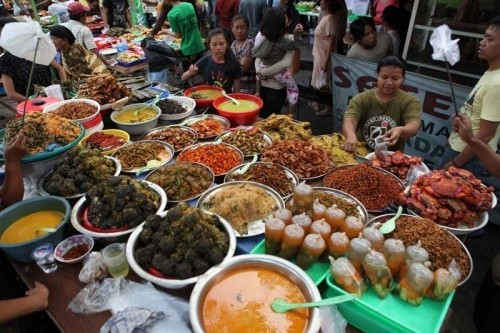One-in-five Indonesian homes experiences malnutrition double-burden: Jakarta the hotspot

According to researcher Masoud Vaezghasemi, it is vital to understand the social and contextual determinants in fighting against both forms of malnutrition.
"In many ways, Indonesia is a prime example to study these phenomena," says Masoud Vaezghasemi. "As the fourth most populous country in the world, Indonesia is undergoing very fast transitions - economically, demographically, health-wise and also nutrition-wise.
“The Indonesian diet transformed very fast from its traditional diets high in cereal and fibre towards Western pattern diets high in sugars, fat, and animal-source foods. This caused a swift increase in the prevalence of overweight and obesity while undernutrition remains a great public health concern."
Vaezghasemi, from Umeå University in Sweden, said analysis of the distributions of body mass index (BMI) across different socioeconomic groups in Indonesia revealed that the difference among people from different socioeconomic groups became smaller, while people within the same socioeconomic group became more differentiated over time.
He added that about 20% of all Indonesian households exhibited a double burden of malnutrition. Households with a higher socioeconomic status had higher odds of double burden of malnutrition with the exception of women-headed households and communities with high social capital.
"At the contextual level, recognition of increased variation among households is important for creating strategies that respond to different needs of individuals within the same household," he said.
In a subsequent sub-study, Vaezghasemi picked up on the findings in regards to gender relations and households' nutritional status. He conducted a qualitative study over two months, which included focus group discussions among rural and urban community members.
Gender relations
The study was carried out in the capital Jakarta, where the researchers had identified the highest percentage of dual burden of malnutrition, and in Central Java, where it was the lowest.
The overall results captured the significance of gendered power relations and generational relations.
According to Masoud Vaezghasemi, the findings have three main implications:
- Future intervention strategies in Indonesia must recognise that there are often different needs within the same household. When both underweight and overweight individuals live in the same household, interventions must be tailored to that or otherwise will create harm.
- Since women-headed households across different socioeconomic groups and communities with high social capital had lower rates of malnutrition, women's empowerment and community social capital should be promoted to reduce inequalities in the double burden of malnutrition.
- Community health and nutrition programmes need to address gender empowerment and engage men in the fight against the emerging obesogenic environment and increased malnutrition, especially among children.
Asia's nutrion, health and food challenges and opportunities will be under the spotlight at our second Food Vision Asia summit in Singapore in April. Find out more here.














